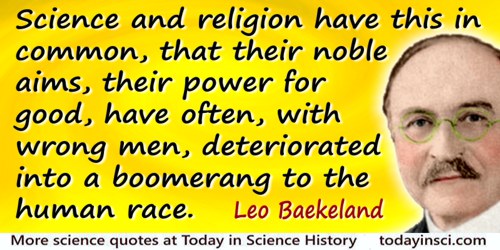Drunkard Quotes (8 quotes)
In a 1852 letter, Nightingale records the opinion of a young surgeon:
The account he gives of nurses beats everything that even I know of. This young prophet says that they are all drunkards, without exception, Sisters and all, and that there are but two whom the surgeon can trust to give the patients their medicines.
The account he gives of nurses beats everything that even I know of. This young prophet says that they are all drunkards, without exception, Sisters and all, and that there are but two whom the surgeon can trust to give the patients their medicines.
Letter to Miss H. Bonham Carter (8 Jan 1852), quoted in Edward Tyas Cook, The Life of Florence Nightingale (1914), Vol. 1, 116.
A hundred devils leap into my body, if there be not more old drunkards than old physicians.
As translated to English by Thomas Urquart in Chap. 41, 'How the Monk made Gargantua sleep, and of his hours and breviaries', The Romance of Gargantua and Pantagruel (1838), 112. The original French quote is: “Cent diables me sautent au corps s’il n’y a plus de vieux yurognes, qu’il n’y a de vieux medecins.” From Chap. 41, Gargantua et Pantagruel collected in Les Oeuvres de M. François Rabelais, Docteur en médecine (1596), 132.
In science, the more discovered, the more new paths open for exploration. It is usual in science, when things are vague and unclear, for the path to be like that of a drunkard, wandering in a zigzag. As we stagger back from what lastly dawns upon our befuddled wits is the wrong way, we cross over the true path and move nearly as far to the, equally wrong, opposite side. If all goes well, our deviations lessen and the path converges towards, but never completely follows, the true one. It gives a new insight to the old tag in vino veritas.
In The Ages of Gaia: A Biography of Our Living Earth (1999), 199.
Knowledge is like a knife. In the hands of a well-balanced adult it is an instrument for good of inestimable value; but in the hands of a child, an idiot, a criminal, a drunkard or an insane man, it may cause havoc, misery, suffering and crime. Science and religion have this in common, that their noble aims, their power for good, have often, with wrong men, deteriorated into a boomerang to the human race.
In 'Applied Chemistry', Science (22 Oct 1915), New Series, 42, No. 1086, 548.
Mere poets are sottish as mere drunkards are, who live in a continual mist, without seeing or judging anything clearly. A man should be learned in several sciences, and should have a reasonable, philosophical and in some measure a mathematical head, to be a complete and excellent poet.
In Notes and Observations on The Empress of Morocco (1674), 70.
There are more old Drunkards than old Physicians.
No. 4858 in Gnomologia: Adagies and Proverbs, Wise Sentences and Witty Sayings (1732), 210. Later printed by Benjamin Franklin as, “There’s more old Drunkards than old Doctors,” in Poor Richard’s Almanack (1736). The quote appears centuries earlier by François Rabelais (1596), as translated to English: “A hundred devils leap into my body, if there be not more old drunkards than old physicians.” See the François Rabelais quotes page on this website.
There’s more old Drunkards than old Doctors.
In Poor Richard’s Almanack (1736). Compare Thomas Fuller, published earlier, “There are more old Drunkards than old Physicians. Proverb collected as No. 4858 in Gnomologia: Adagies and Proverbs, Wise Sentences and Witty Sayings (1732), 210. The quote appears centuries earlier by François Rabelais (1596), as translated to English: “A hundred devils leap into my body, if there be not more old drunkards than old physicians.” See the François Rabelais quotes page on this website.
This is the excellent foppery of the world: that when we are sick in fortune—often the surfeits of our own behaviour—we make guilty of our disasters the sun, the moon, and stars, as if we were villains on necessity, fools by heavenly compulsion, knaves, thieves, and treachers by spherical predominance, drunkards, liars, and adulterers, by an enforced obedience of planetary influence, and all that we are evil in, by a divine thrusting on. An admirable evasion of whoremaster man, to lay his goatish disposition on the charge of a star! My father compounded with my mother under the Dragon's tail and my nativity was under Ursa Major, so that it follows that I am rough and lecherous. Fut! I should have been that I am had the maidenliest star in the firmament twinkled on my bastardizing.
King Lear (1605-6), I, ii.

 In science it often happens that scientists say, 'You know that's a really good argument; my position is mistaken,' and then they would actually change their minds and you never hear that old view from them again. They really do it. It doesn't happen as often as it should, because scientists are human and change is sometimes painful. But it happens every day. I cannot recall the last time something like that happened in politics or religion.
(1987) --
In science it often happens that scientists say, 'You know that's a really good argument; my position is mistaken,' and then they would actually change their minds and you never hear that old view from them again. They really do it. It doesn't happen as often as it should, because scientists are human and change is sometimes painful. But it happens every day. I cannot recall the last time something like that happened in politics or religion.
(1987) -- 


